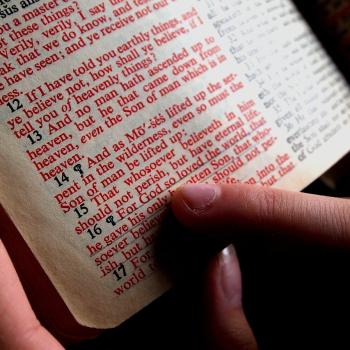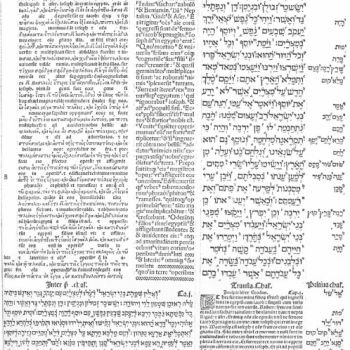
The Islamic position on “excommunication” (or “takfir”/“takfeer”) is a complicated one; complicated in the sense that (while Islam does technically excommunicate) not all Muslims agree on what constitutes an offense worthy of takfir, nor on who has authority to declare another Muslim “murtadd” or apostate. (The literal meaning of “murtadd” is to “turn your back” on the faith).
Whereas, in many Christian traditions (e.g., Roman Catholicism or Eastern Orthodoxy), the excommunicated person is still a member of the faith—but has been excluded from participation in certain rites or sacraments; in Islam, excommunication is typically perceived as cutting one off from the faith—making one a “non-Muslim” or an “infidel” (i.e., “kafir”) of sorts.
Cause For Excommunication
Again, while not all Muslims will agree on what should get you excommunicated from the faith, each of the following have been thought to be offenses serious enough to warrant one’s excommunication from Islam.
- Openly and knowingly abandoning Islam, its teachings, and practices.
- Living one’s life in a way that clearly evidences that one has strayed or is deviant in his or her beliefs and practice of Islam.
- Bowing to or worshiping idols, crosses, planets, or symbolic representations of God.
- Rejecting strict monotheism by embracing other deities besides Allah; or holding that God is female, a child, has partners or helpers (such as a spouse, son, or additional members of a Godhead or Trinity).
- Denying that Allah is the cause and/or source of all creations.
- Mocking the Prophet Muhammed or denying his prophetic mantle and divine call.
- Openly calling into question something taught in the Qur’an or an accepted statement from the Prophet Muhammed, as given in the Hadith.
- Denying the revealed nature of the Qur’an as literally God’s word—or mocking that holy text and its teachings.
- Denying the obligatory nature of something that the “imja” (or consensus of Muslims) hold to be obligatory and/or salvific.
Less commonly seen as a justification for “mukaffir” (or the act of excommunication) would include the following.
- Intentionally praying in a direction other than Mecca.
- Using music as a means of worship (as Sufis do) or reciting the Qur’an to music.
- A female cursing her husband or doing the same to an Islamic cleric or scholar.
While rejected by mainstream Islam, radical groups (prone to support terroristic acts), suggest that the following acts warrant excommunication from Islam as well.
- A leader of an Islamic state who is insufficiently religious in his personal life.
- A Muslim government official who does not stand up for Islam or who does not enforce Sharia Law upon all living in the country—regardless of the citizen’s religious tradition or level of personal religiosity. The Qur’an warns: “Those who do not judge” others “by what Allah has revealed are indeed the unbelievers” (5:44). This passage is seen by some as supporting the idea that a government official who does not implement and enforce Sharia Law is formally takfir (or excommunicated).
- A Muslim who is of a different denomination than their takfiri (on condemner), or who does not support the views and practices (e.g., terrorism) of the person who calls for their excommunication.
Of course, for a Muslim to make “mistakes” (in practice, doctrine, or belief) when he or she is too young to be fully accountable, is in a mentally unstable state, is uninformed our unaware, or is simply confused about what is right or expected, does not constitute kafir (unbelief), shirk (idolatry), or murtadd (apostasy). Indeed, it is important to understand that most Muslims hold that being “guilty” of wrongdoing or wrong belief does not necessarily constitute something justifying excommunication, or worthy of being labeled an “infidel” (kafir) or “apostate” (murtadun). For example, one may be confused as to the correct direction of Mecca when saying one’s prayers. One may misread the meaning of a passage of the Qur’an. One may hear of a teaching attributed to Muhammed that just doesn’t “ring true”—but, as it turns out, the quotation had been stripped of context, leaving it to appear questionable. In each of these cases, while the practitioner may be wrong, there is no intent to reject truth, fight against the faith, or disavow an orthodox passage, practice, or principle of Islam. Generally speaking, mistakes akin to those just mentioned are seen as nothing more than human error, and almost no mainstream Muslim would see these as cause for excommunication.
The Process of Excommunication and Who is Authorized to Excommunicate Another
In many faiths which self-identify as Christian, such as Roman Catholicism, Eastern Orthodoxy, The Church of Jesus Christ of Latter-day Saints, or Jehovah’s Witnesses, there is a very formal processes for excommunication (though this term is not always employed, and its implications vary from one Church to another). However, in Islam, the process of excommunication is not as cut and dried as it is in much of Christianity.
In Islam, the act of declaring someone takfir is called mukaffir. That much is agreed upon. How that declaration is accomplished is where things get a bit hazy.
It is a major point of contention among Muslim clerics and scholars as to who can authoritatively declare someone takfir—or no longer part of the faith. Some Muslims hold that only the Prophet Muhammed could make such a declaration about another and, since the Prophet is deceased, no living person is authorized to excommunicate another. However, others hold that excommunication can happen today, but only if a cleric, scholar, or Islamic court pronounces a fatwa (or legal judgement) upon the individual, declaring him or her “kafir” (i.e., an unbeliever). And others still hold that any lay practitioner of Islam, if he or she observes another Muslim engaging in apostate, idolatrous, or grossly inappropriate behavior, may declare him or her excommunicated.
While excommunications may have happened more frequently and more haphazardly in the early days of Islam, today there is a greater sense of caution about such things. Indeed, making such a judgement about another human being is generally seen as something best left to those who have a deep knowledge of Islamic “fiqh” (or jurisprudence). Most lay Muslims are simply not informed enough to make that kind of educated decision about another person’s life, worthiness, or orthodoxy and orthopraxy. Consequently, while one can be excommunicated through a simple verbal declaration (by a “takfiri” or excommunicator), it is rare that such declarations are made today—most Muslims thinking it wiser to allow Allah to make such judgement calls. The act of excommunicating someone else is so serious and the consequences so significant, that many question the propriety that any mortal should even go down the road of judging another in such a way. Indeed, some hold that accusing another practitioner of Islam of apostasy, or of being an unbeliever, is actually an apostate act itself, and the one doing it is worthy of excommunication. This is often based on the following statement, attributed to the Prophet Muhammed: “When a person calls his brother (in Islam) a disbeliever, one of them will certainly deserve the title. If the addressee is so as he has asserted, the disbelief of the man is confirmed, but if it is untrue, then it will revert to him.”
As noted above, one of the ways to get oneself excommunicated would be by “Living one’s life in a way that clearly evidences that one has strayed or is deviant in his or her beliefs and practice of Islam.” On this point, some Muslims—after 9-11—argued that the terrorists who perpetrated that evil act had excommunicated themselves from the faith, because their actions were so very contrary to the teachings of the Qur’an (See Sūrha 2:190 & 256; 4:29; 5:8 & 32; 6:151; 8:61; 45:14; 58:7-10; 59:5; etc.) and the views of the faith; Islam being known as “The religion of peace.” Thus, while there are “takfiri”—or those who excommunicate others; many in Islam believe that one can technically excommunicate himself by choosing to do significant evil.
The Penalties of Excommunication
As already pointed out, many Christian traditions today do not perceive excommunication as stripping the practitioner of his or her membership in the Church—only the loss of certain privileges. In Islam, however, most practitioners see kafir and the consequent takfir as more serious. If one truly disbelieves, if one is genuinely in a state of apostasy or evil, one may still choose to hypocritically participate in the rites or the life of the community. However, Allah knows that individual has been severed from the faith and will be eternally damned—regardless of whether others are unaware of his or her apostate state.
In addition to the expectation that one who dies in a state of shirk or kafir will be damned (in the next life), some of the more radical movements (who consider themselves Islamic) will also sometimes confiscate the property of one who has been excommunicated, put that individual to death, and prohibit him or her from having a proper Muslim burial. While mainstream practitioners of the faith would typically not engage in such retribution, among certain “radical” segments, such penalties or repercussions are seen as totally justified.
For Muslims today, the word “unbelief” (or kafir) has more serious connotations than the English term implies. One worthy of takfir is not simply unsure if he or she “believes” in Islam and its teachings. Rather, the Arabic root K-F-R—from which the word kafir comes—carries the connotation that one’s disbelief is not simply passive doubt but, instead, an active striving to rebel against the teachings and practices of Islam; an open opposition to God and His teachings or commands; a flagrant rejection of the prophets (including the Prophet Muhammed) and their revelations; and an embracing of things which the Islamic tradition has formally identified as “evil.” Thus, kafir worthy of takfir is much more than doubt or disbelief. It is an active striving to overturn the will of Allah. It is the one sin He cannot forgive, because it is the one sin that outright refuses God’s grace and mercy. Thus, one guilty of such kafir will be excommunicated—whether by God Himself, or by another in a position to so do.
6/26/2024 9:31:26 PM











